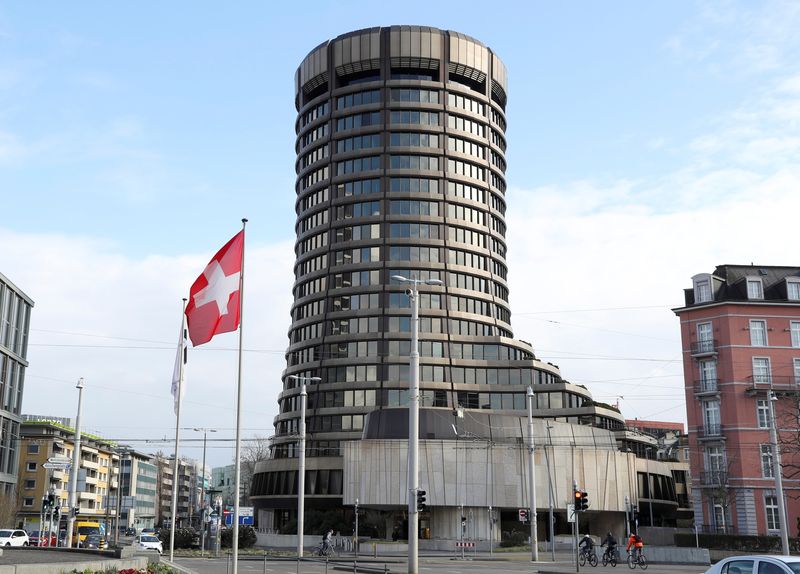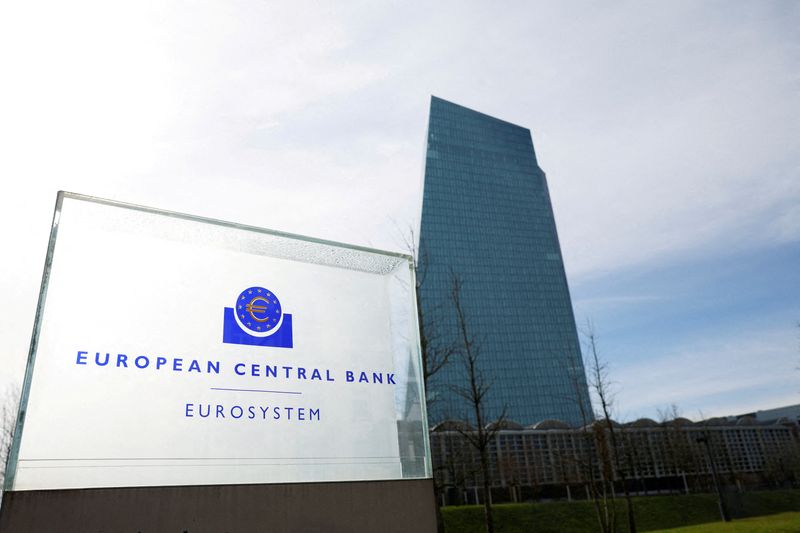By Marc Jones
LONDON (Reuters) - The central bankers' central bank, the Bank for International Settlements, has urged investors to hunker down for an extended spell of unpredictability in global interest rates, as well as rising pressures in the financial system.
The possibility of inflation remaining stubbornly high and requiring major central banks like the U.S. Federal Reserve and European Central Bank to keep borrowing costs at their current elevated levels should not be underestimated, the BIS said.
"Clearly there are still some residual differences between what financial markets are seeing and the communication that has come from central banks," Claudio Borio, the head of BIS's monetary and economics unit, said as part of a quarterly report.
The assessment comes as global markets have largely shrugged off the collapse of a number of mid-sized U.S. banks this year triggered by the sharp rise in rates, as well as the emergency takeover of Credit Suisse by UBS.
Borio said that after years of predictability - when back-to-back crises pushed rates to sub-zero levels in some parts of the world, followed by rapid increases in the last 18 months - the directionality of central banks was no longer a given.
"The risk that inflation might turn out to be more stubborn than expected is something that we should not rule out," Borio added.
"Therefore business models, trading strategies, that were predicated on that assumption (of rates coming down quickly) are particularly vulnerable to current conditions".
There was also a warning that the pressure of higher borrowing costs could leave businesses and mortgage borrowers unable to cope and cause credit losses for banks and other lenders.
While there have been some signs of stabilisation in some property markets around the world, the loan losses both there and in other sectors will continue to cause problems as economies now weaken, Borio estimated.
"The question is how resilient the overall financial system is going to be in order to absorb those losses," he added, "and particularly how large and persistent those losses are going to be".
The BIS report also reiterated concerns about the impact on highly leveraged parts of the financial sector that had bet on U.S. interest rates staying lower than they ultimately have.
"The current build-up of leveraged short positions in U.S. Treasury futures is a financial vulnerability worth monitoring," the BIS said, citing the risk of "margin call spirals".
Margin calls are where institutions suddenly have to find cash to cover potential losses when market prices move against them.

Recent examples were seen in March 2020 when the COVID-19 pandemic struck, and in September 2019 in the bank-to-bank 'repo' lending market.
"Margin deleveraging, if disorderly, has the potential to dislocate core fixed income markets," the BIS said.
